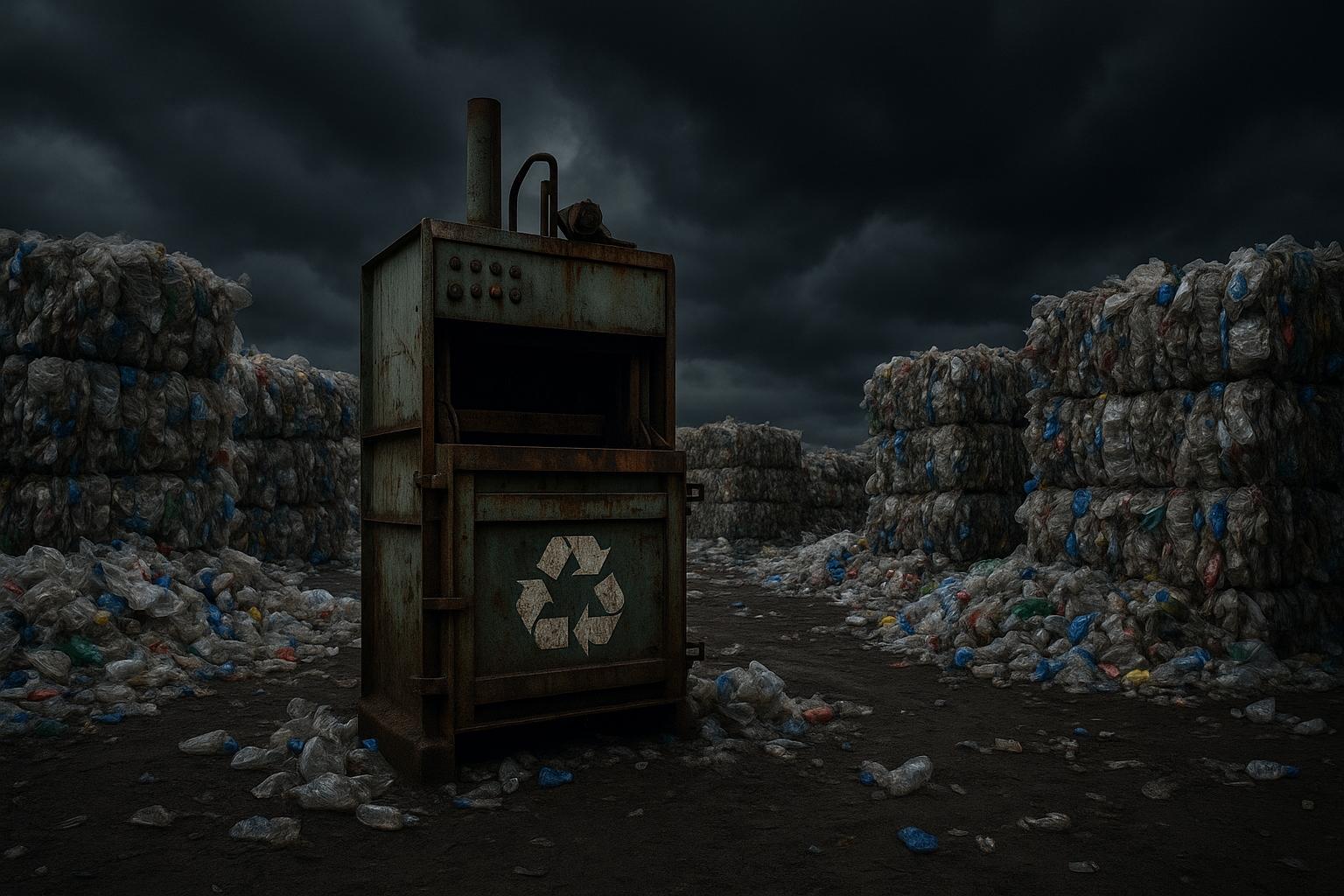The UK plastic packaging recycling sector is currently facing an unprecedented crisis, described by industry experts as a perfect storm on the brink of collapse. Stuart Foster, CEO of RECOUP and Co-Chair of the CIWM East Anglian Region, outlines the multifaceted challenges undermining the UK’s plastics reprocessing infrastructure, as well as potential pathways to recovery and sustainable growth.
The viability of domestic plastic recycling has been severely hampered by a combination of rising operational costs, notably energy and labour, intensified competition from cheap fossil-based plastic imports primarily from China, Africa, and the Middle East, and weaknesses in policy enforcement. One striking example is Wellman International, a historic player in the UK recycling market and a partner with RECOUP since the 1990s. The company recently entered examinership after reporting double-digit million-pound losses across 2023 and into 2024, attributed chiefly to soaring energy costs following geopolitical conflicts and intense low-cost import competition. This development underscores the precarious position of UK reprocessors and reflects a broader trend affecting established recyclers. Similarly, Biffa, a major UK waste management operator, has shuttered its Washington, Sunderland recycling plant due to a challenging market environment, including regulatory uncertainties and competitive pressures. It has called on the UK government to restrict plastic waste exports to support domestic processing capabilities.
Beyond operational constraints, systemic issues plague the UK’s recycling framework. The Packaging Recovery Note (PRN) system, traditionally a primary financial support mechanism for domestic recyclers, has become volatile and insufficient in its current form. Over half of the plastic packaging collected for recycling in the UK—685,000 tonnes out of 1.18 million tonnes in 2023—was exported, predominantly to Turkey, reflecting an erosion of domestic reprocessing capacity. Many UK facilities run below capacity or compensate by importing plastic waste externally due to price and quality factors, while others have ceased operations entirely. Industry advocates, including Foster, suggest reforms such as stabilising PRN values, differentiating between domestic and export credits, and integrating the PRN system more closely with the emerging Extended Producer Responsibility (EPR) regulations to create a unified, more supportive framework for UK recyclers.
Complicating matters further is the UK’s Plastic Packaging Tax, intended to incentivise the use of at least 30% recycled content in plastic packaging. Despite good intentions, enforcement has been weak, with many imported products claiming recycled content—sometimes ambiguously defined as ‘pre-consumer’ material—that cannot be effectively verified. This lack of robust certification and audit mechanisms undermines the tax’s credibility and places compliant UK recyclers at a competitive disadvantage. Increasing the tax rate without addressing enforcement gaps could exacerbate fraudulent practices and yield little environmental benefit. Foster argues for investing a portion of this tax revenue into establishing a national verification framework for recycled content and linking recycled content requirements more directly to the EPR system, thereby providing better incentives and support for domestic recycling operations.
On a more optimistic note, new technological solutions and investments continue to emerge. For example, Mura Technology, a UK company, is pioneering HydroPRS, an innovative chemical recycling process using supercritical water to break down mixed plastic waste into short-chain hydrocarbons. This technology is designed to supplement mechanical recycling, aiming to produce food-grade plastics and increase recycling capacity significantly. Mura’s first commercial plant on Teesside, set to begin operations later this year, will initially recycle 20,000 tonnes of plastic annually, with plans to expand globally to one million tonnes by 2025.
Nevertheless, the broader picture reveals that without decisive and coordinated action, the UK risks losing a decade in its progress toward a circular plastics economy. Despite global plastic production reaching 413.8 million tonnes in 2023—a figure largely driven by sectors outside UK and European regulatory control—domestic recycling infrastructure is deteriorating. This decline threatens the UK’s ability to meet ambitious recycling and sustainability targets, which have already struggled due to inconsistent collection systems, contamination issues, and weak policy enforcement.
To address these challenges, the key actions proposed include: strengthening enforcement of recycled content claims and import standards; stabilising PRN markets and aligning them with EPR to support homegrown recycling; strategically investing Plastic Packaging Tax revenues into domestic infrastructure; rebalancing incentives to prioritise UK recycling over exports; reducing plastic waste exports where domestic alternatives exist; and accelerating approvals and support for food-grade recycling innovations.
Only through such a comprehensive approach can the UK reclaim leadership in sustainable plastic recycling and build a resilient circular economy. Failure to act decisively threatens to undermine years of progress and amplify the environmental and economic costs of plastic waste.
Reference Map:
- Paragraph 1 – [1], [2], [3], [5]
- Paragraph 2 – [1], [7], [2], [3], [5]
- Paragraph 3 – [1], [7]
- Paragraph 4 – [1], [7]
- Paragraph 5 – [1], [6]
- Paragraph 6 – [1], [4]
- Paragraph 7 – [1]
Source: Noah Wire Services
